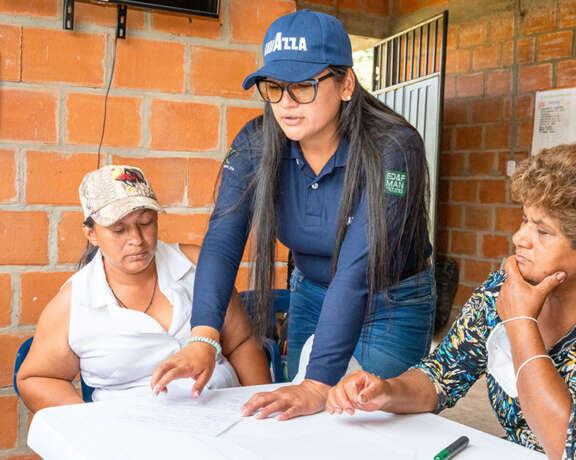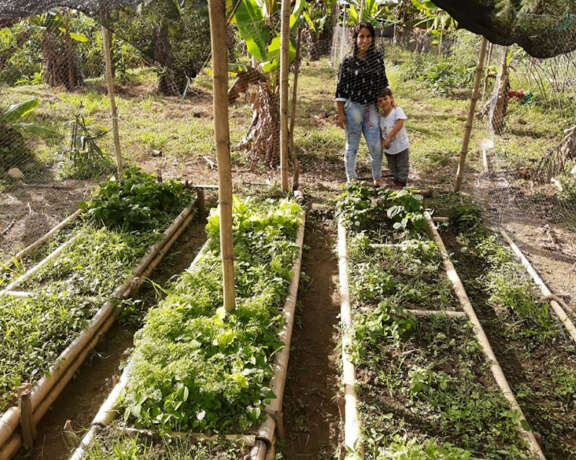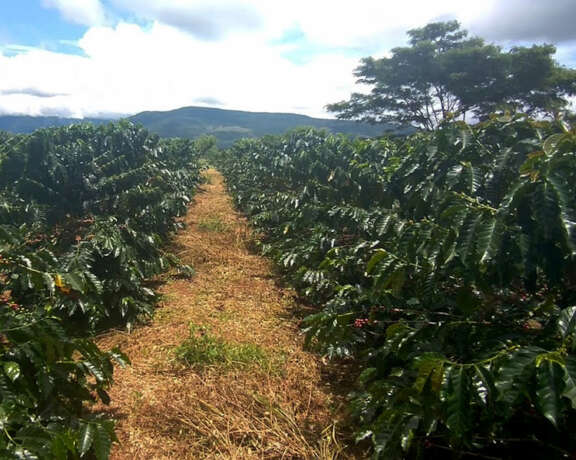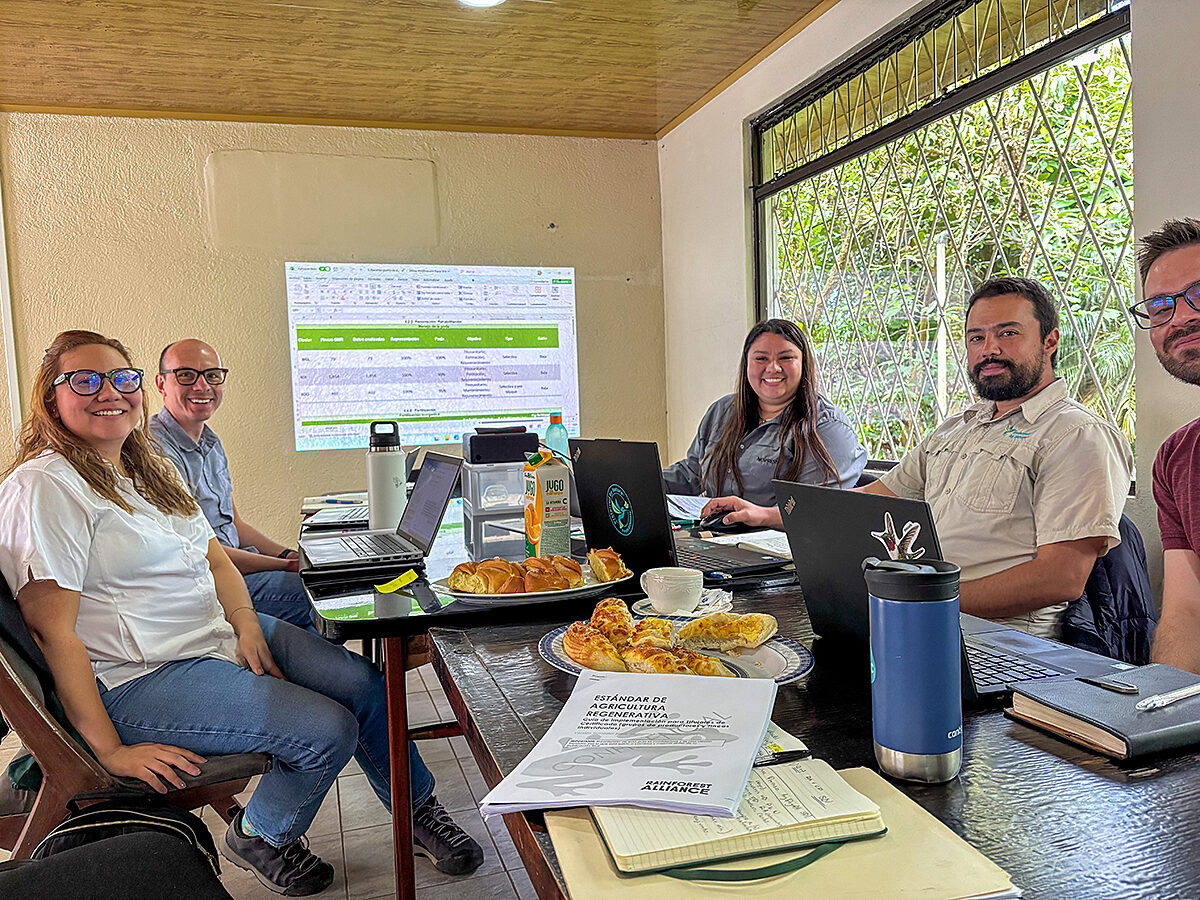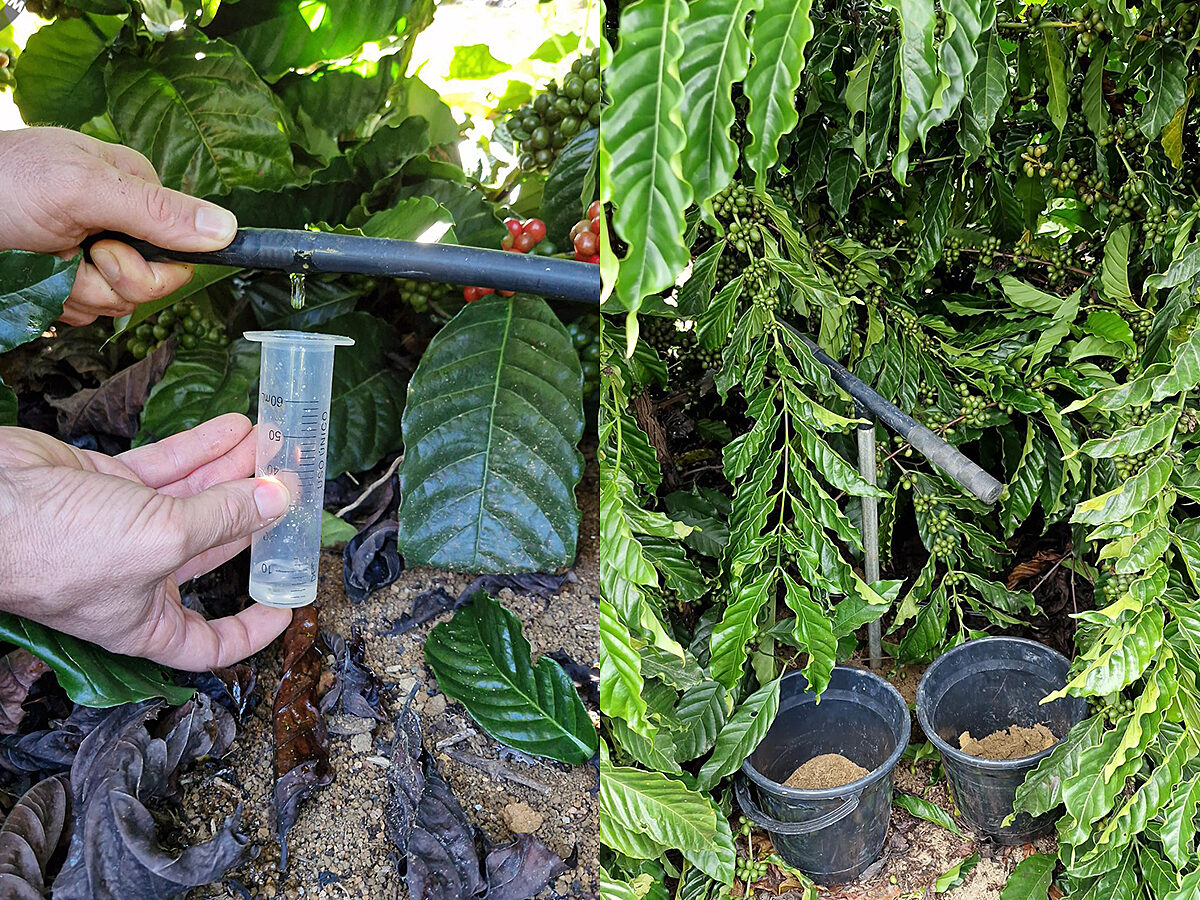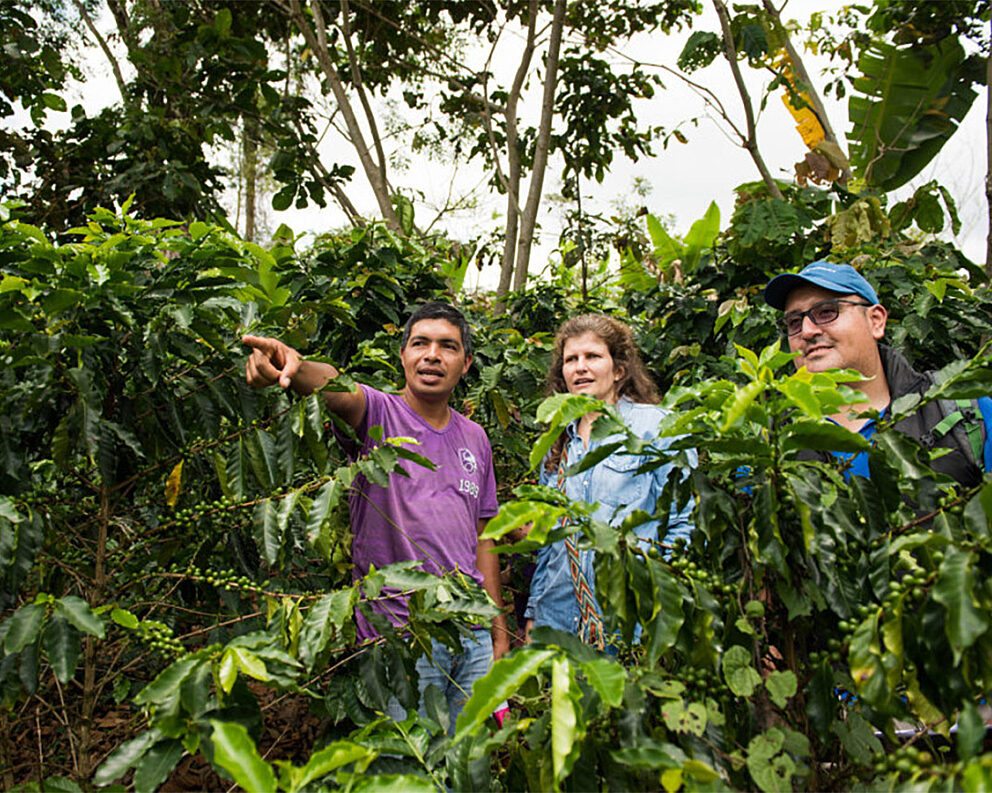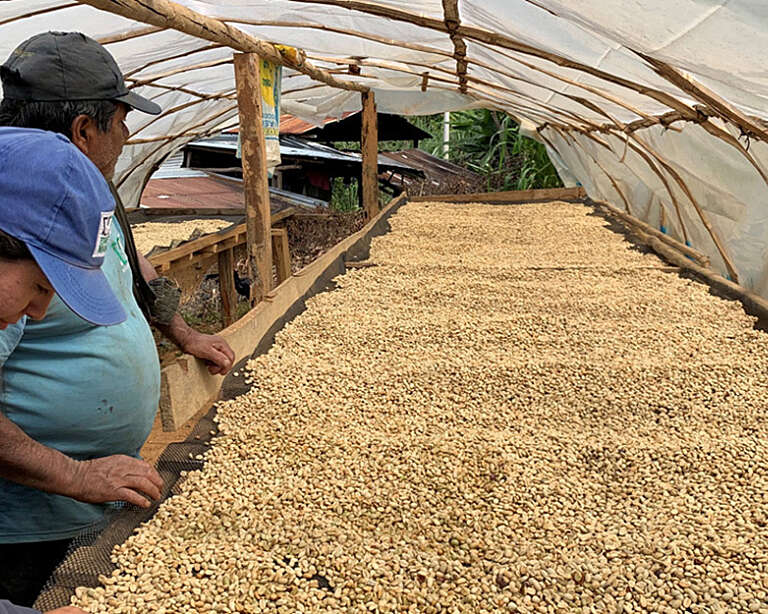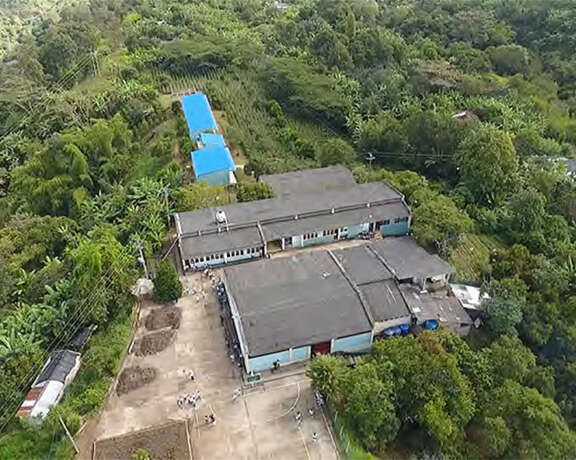Colombian coffee farmers recovering from conflict
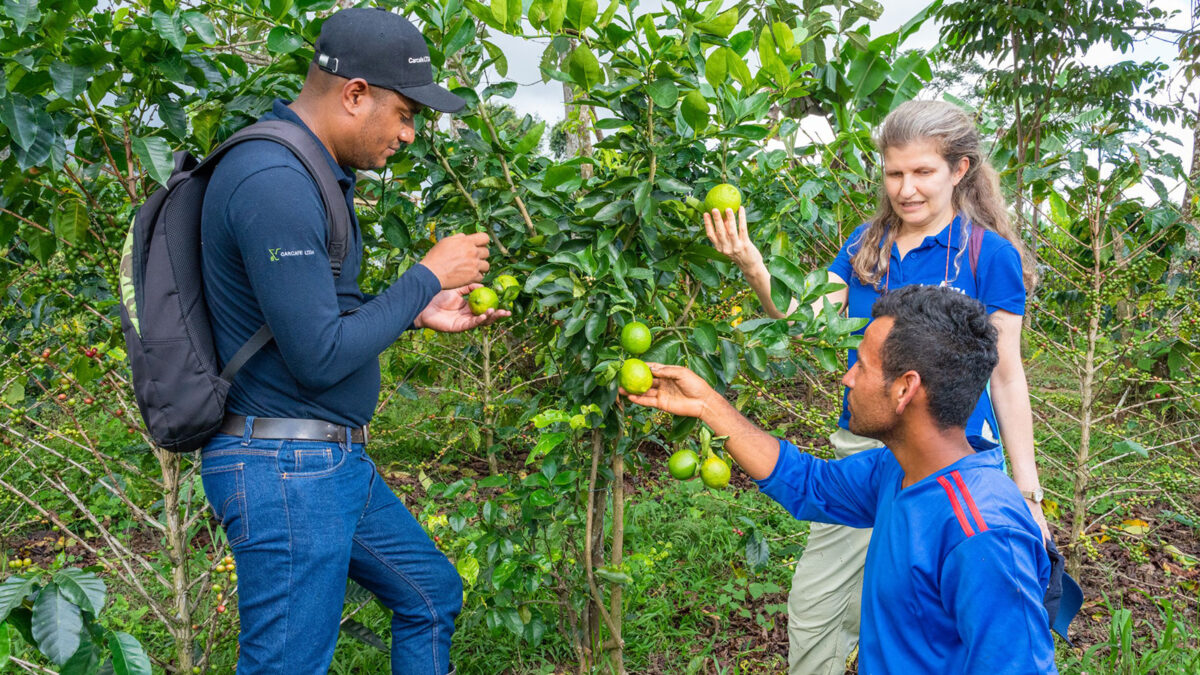
A farmer speaks with members of the Volcafe team about limes he is growing. The trees were planted just 2.5 years ago as part of the project and are thriving in this tropical region. The project emphasises agroforestry and crop diversification as part of a sustainable farming future. Image: Carcafe
In a region emerging from conflict, coffee is giving people a new start.
Colombia’s long conflict put countless pressures on the civilian population caught between armed groups and security forces. For Colombian farmers violence was a constant threat, causing displacement and intense disruption to their livelihoods. The 2016 peace agreement between the government and the largest guerrilla group raised hopes for a fresh start – including the chance to make a decent living through farming.
Quick facts
Country: Colombia
Objectives: Support farmers emerging from Colombia’s violent conflict to recover livelihoods on their farms by increasing coffee plantations and improving local practices to achieve consistent export quality; Promote crop diversification, safeguard environment through agroforestry and creation of a biological corridor between national parks; Support farmers with financial follow-up across all crops and activities to improve financial planning
Timeline: 2015 onwards
Impact: 900 households have made various improvements via the project: 400 hectares using agroforestry, 100 farms certified to Rainforest Alliance standards, nearly 300 hectares replanted or renovated with coffee.
The Carcafe Foundation – set up by Carcafe, Volcafe’s coffee business in Colombia – designs projects that support coffee-farming communities on their path toward sustainable profitability. In partnership with the Lavazza Foundation, Volcafe has been running a project in Colombia’s Meta department that is enabling farmers to build decent livelihoods after decades of conflict.
The project began with 100 farmers and has evolved to include 900 households whose farms are situated between two national parks (the Sumapaz Moors and the Sierra de la Macarena) which protect vital water sources and tropical forests. Many farming families arrived in this sparsely populated region during the past three decades, after being displaced from other parts of the country by the conflict. Some cut trees for timber and others carved out small plots, planting coffee or other crops – until competing armed groups pressed them to plant coca that would fund their war efforts. Cut off in isolated communities, the farmers’ livelihoods were made all the more precarious by a combination of violent confrontations over territory and the coca trade, the threat of forced recruitment into armed groups, and indiscriminate drug fumigation flights. While the conflict raged in the countryside, alternative crops remained untenable.
As the peace talks gathered pace last decade, the outlook began to change – farmers could sense new possibilities, but they needed support to transition away from coca to coffee and other crops.
Our field engineers gave one-to-one training from farm to farm, visiting each family once a month. This intense personalised training gave the original 100 farmers a huge boost.
“Our project was tailor-made to adapt to local conditions. Group sessions were not possible because of the long distance between farms, lack of road network and inexistent transportation service,” notes Vivian Vasquez, International Cooperation Project Coordinator with Volcafe in Colombia. “Our field engineers gave one-to-one training from farm to farm, visiting each family once a month. This intense personalised training gave the original 100 farmers a huge boost.”
Since 2015, this project has offered support to participants based on their specific needs. Thus far, the project has assisted farmers to plant 115 hectares of new coffee bushes, rejuvenate the original 177 hectares (combining coffee with agroforestry arrangements), and build new drying facilities. Experts from the National University of Colombia have advised farmers on protecting 450 hectares of primary forest as well as planting agroforestry systems on 115 hectares, thus enabling farmers to diversify their income by growing additional crops among their coffee plants. To boost families’ food security, the project has also worked with 300 female farmers to develop grocery gardens, which proved especially useful during Covid-19 lockdowns.
Involving local farmer associations, the project is designed not only to respect the two nearby national parks, but also to reverse some of the previous damage to biodiversity in the region. As agroforestry approaches are implemented on the farms, they are contributing to the formation of a biological corridor between the parks, creating islands of biodiversity that facilitate the movement of flora and fauna.
At the coca time you were overwhelmed all the time; now we have a better life.
While this promotes ecological recovery in the region, it also supports the farmers’ efforts toward sustainable profitability – so far 100 farms in the project have achieved Rainforest Alliance certification, allowing the farmers to access a premium segment of the coffee market. Over the next few years, the project aims to work with a total of 900 farming households to further expand this burgeoning biological corridor.
While coffee farming isn’t easy, the project is supporting farmers’ transitions toward a sustainable livelihood. As Aldemar, one of the farmers in the project, says, “Now we are at peace here, I plant my coffee, improving every day. At the coca time you were overwhelmed all the time; now we have a better life.”
Vivian Vasquez, the project coordinator with Volcafe, also emphasises the wider context of this work for a post-conflict society: “The social relevance of the project is easy to appreciate, because many coffee growers have been victims of the conflict and some former combatants are now neighbours of their farms. Our coffee growers are giving work to those who were their aggressors. All of this has influenced the evolution of the project. At a social and political level, it is a project that finds itself in a historic moment for the country.”
Marie Renou-Ullrich, Head of Marketing and Communications, email hidden; JavaScript is required


